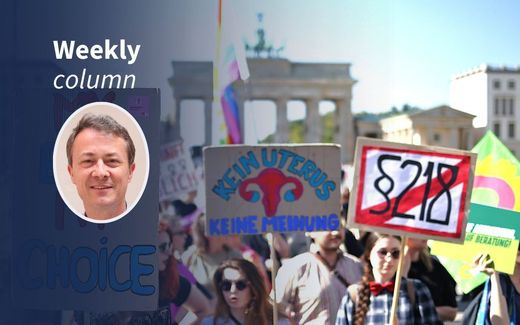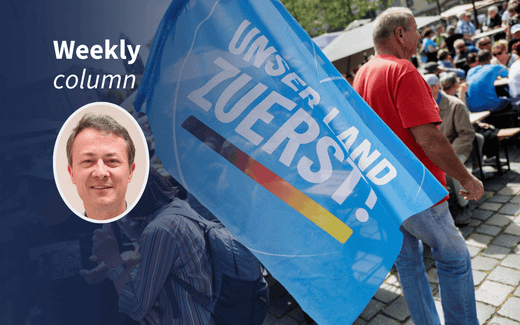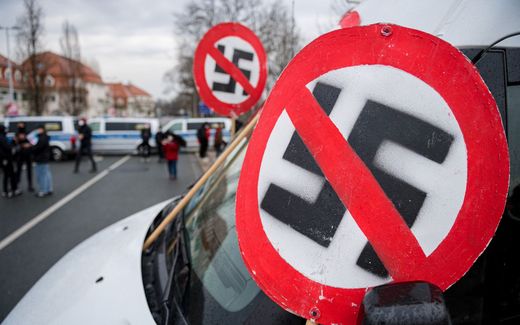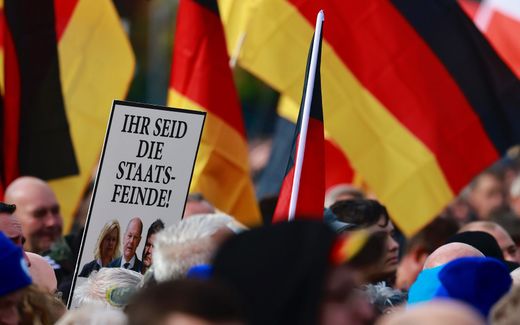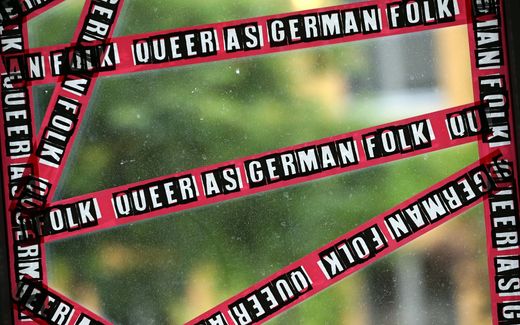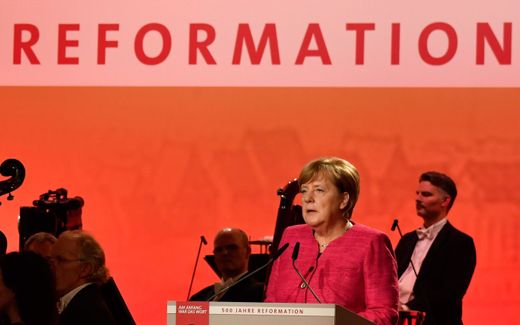Christian faith and culture at stake in German elections
19-02-2025
Central Europe
Cornelia Huber, CNE.news
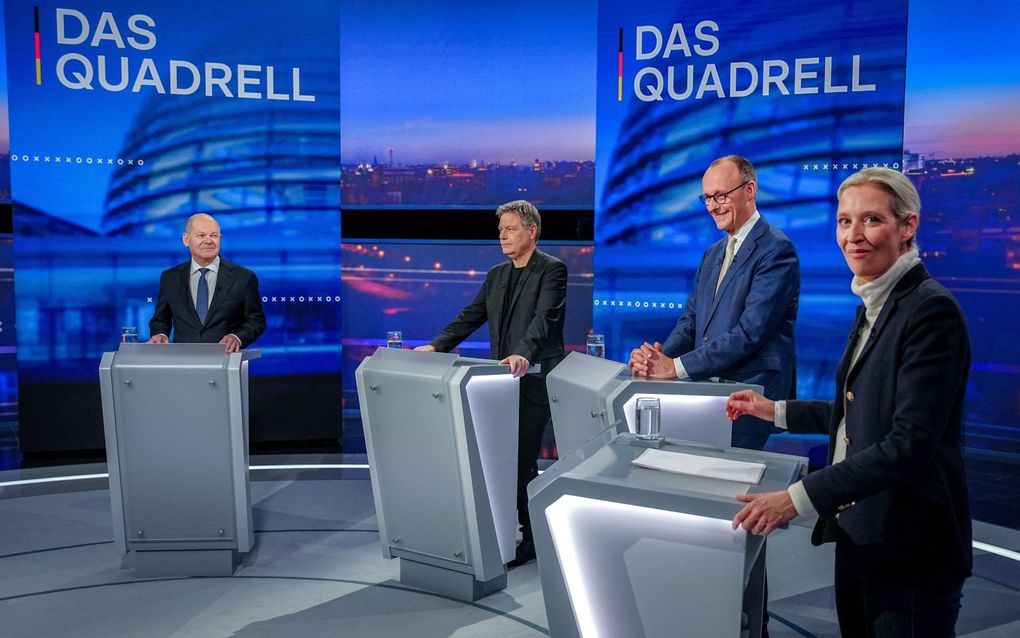
Top candidates debate in Germany. Photo EPA, Kay Nietfeld
Central Europe
The largest democracy in the European Union is going to vote this week. What should Christians care about when Germany comes up to vote?
Stay up to date with Christian news in Europe? Sign up for CNE's newsletter.
A new Bundestag will be elected in Germany on Sunday. Christians can only cautiously hope for better developments. In many areas, the clock cannot be turned back. As current forecasts suggest that no party will win an absolute majority, the future coalition government will have to make compromises. So, who are the main players in this election, and what do they stand for?
CDU: More support for families
The Christian Democratic Union of CDU and CSU is considered to have the best chance at winning the elections. They state in a central position that Germany is “historically, culturally and value-wise deeply influenced by the Christian faith.” They are committed to “the protection of Christian holidays and Sunday rest as well as regulated cooperation between the state and the church.”

The Union reaffirms the image of marriage and family as a legally binding and lasting union between two people. However, it also recognises the reality of modern German society and shows respect for different lifestyles. Families and children should be supported through tax relief and by improving the compatibility of family and career.
Furthermore, the Union emphasises parents’ freedom of choice in the upbringing of their children and calls for parents to be more closely involved in school decisions.
According to the controversial “self-determination law” of the present traffic light coalition government, it has been possible to change the gender entry from the age of 14 without an expert opinion or consultation since November 1, 2024. In this context, the CDU and CSU are demanding at least independent psychological assessments and a general rejection of surgical interventions before the age of adulthood.
The CDU/CSU does not want to change the current regulation on abortion, which was the subject of heated political debate shortly before the election.
SPD: Promote interreligious dialogue
The SPD provided the chancellor in the last federal government. It defines family as “where people take care of each other and want to stand up for each other”. The party does not use the words father, mother, or child.

The election manifesto of the SPD states that “churches and religious communities make a valuable contribution to our coexistence.” The party wants to “promote interreligious dialogue and protect religious freedom in order to strengthen the diversity of our society as an opportunity for open-minded coexistence.”
The SPD is committed to equality for “queer” families in family and parentage law and states that sexual orientation and gender identity should be included in the German constitution as an object of prohibited discrimination.
In education policy, childcare places and all-day care are to be expanded. The SPD would like to extend parental allowance, which families can currently receive for a maximum of 14 to 18 months, of which 6 months are mandatory for each parent.
In addition, the SPD is planning a two-week family start period for fathers or partners with full pay immediately after the birth. The party remains committed to the (failed) legalisation of abortion.
Greens: Equality for all types of families
Die Grünen, part of the previous federal government, also acknowledges “the contribution of the churches and religious and ideological communities to democratic and social cohesion.” This puts the Christian churches in the same category as other religious communities, such as Muslims and Jews. Unlike all other major parties, Die Grünen (Greens) are explicitly committed to church asylum.

The party advocates a variety of family models and emphasises the importance of equality and support for all types of families.
Die Grünen would also like to reform parental allowance. Not only should the maximum amount be increased from €1,800 to €2,400, but the minimum amount should also be raised from €300 per month to €400. The latter would have a particular impact on mothers who were not in employment before the birth of their child, for example, because they were bringing up another child.
Childcare in daycare centres and schools is to be further expanded. The (failed) legalisation of abortion is also still on the agenda.
FDP: All religions are equal
The liberal FDP was responsible for breaking its coalition with the SPD and Die Grüne. According to current forecasts, it is in danger of not re-entering the Bundestag.

The FDP is committed to religious freedom and wants to put other religious communities on an equal footing with Christian churches, provided they recognise the principle of equality and the diversity of faith, the fundamental rights, and the self-determination of their members.
It advocates a broad concept of the family. A “modern family law (...) should do justice to today’s diverse family constellations, for example, by enabling parental agreements before conception, especially in rainbow families, modernising parentage law, allowing unmarried couples to adopt and enshrining the community of responsibility in law.”
It also promotes the legalisation of egg cell donation and embryo donation, surrogate motherhood and better financial support for fertility treatment regardless of marital status or sexual orientation.
At the end of life, the FDP postulates a “right to a self-determined death.” This means that everyone should be able to choose euthanasia.
AfD: Cultural Christianity is important
The controversial right-wing populist AfD (Alternative für Deutschland) was described as “unelectable” by the German Catholic Bishops’ Conference in its declaration on ethnic nationalism.
The AfD considers Christianity, like the German language or German history, to be part of Germany’s dominant culture. But it is more the Christian culture than the Christian faith it cherishes. The party’s view of humanity does not make any reference to Christianity: the AfD program states that “AfD’s view of humanity sees every individual as determined by their personal freedom, their right to full development, and their personal responsibility towards their fellow human beings and the community. It is based on humanistic and occidental values and norms, with equal opportunities at the centre.”

The party considers the traditional family of father, mother, and children as the cornerstone of society. It rejects alternative ways of life and calls for the restoration of special protection for the family. Families should “ideally be able to live on one salary and not be dependent on dual employment.”
A childcare salary up to the age of three should give parents real freedom of choice between self-care and external care, and the tax incentives for families should be significantly expanded.
The party is committed to a binary vision of (biological) gender and wants to abolish the “self-determination law” and prevent “any indoctrination with regard to gender mainstreaming and other ideologies” in the training of educators. Furthermore, the AfD explicitly rejects only paid surrogacy and plans to abolish church asylum.
Leftists: Religious freedom is important

The small parties Die Linke (Leftists) and BSW (Bündnis Sahra Wagenknecht, a split-off from The Leftists) are currently represented in the Bundestag, but their re-entry is questionable.
Both Die Linke and BSW emphasise the importance of religious freedom. Die Linke explicitly calls for the legalisation of abortion, while the BSW probably has a similar stance, following its statements in the Bundestag during the debates.
Both focus on the expansion of childcare in daycare centres and other institutes. Unlike Die Linke, the BSW rejects the so-called Self-Determination Act as a “threat” to women and girls. In the field of education, Die Linke is committed to a clear separation of church and state, and is therefore critical of denominational schools.
Will there be a winner?
Under the leadership of the Christian Democrats, who are considered to have the best chances of winning the elections, there will certainly be no attempts to further legalise abortion. In addition, the fight against the normal family waged by the last federal government should be brought to a halt, even if, realistically, sensible legal regulations in family and parentage law are needed for all constellations.
As the Liberals are unlikely to enter the Bundestag, the introduction of the so-called community of responsibility for several people of different genders is unlikely. The Self-Determination Act, which has recently made it possible in Germany to register a person’s gender without further examination, could be tightened up, at least for minors. Whether family support is provided by means of tax law or by other means, on the other hand, is more of a technical question.
In short, it is quite certain that the declining status of Christianity in a secularised society will hardly change after the election. However, a coalition led by the Christian Democrats is likely to hold the Christian churches in higher esteem than before.
Related Articles

